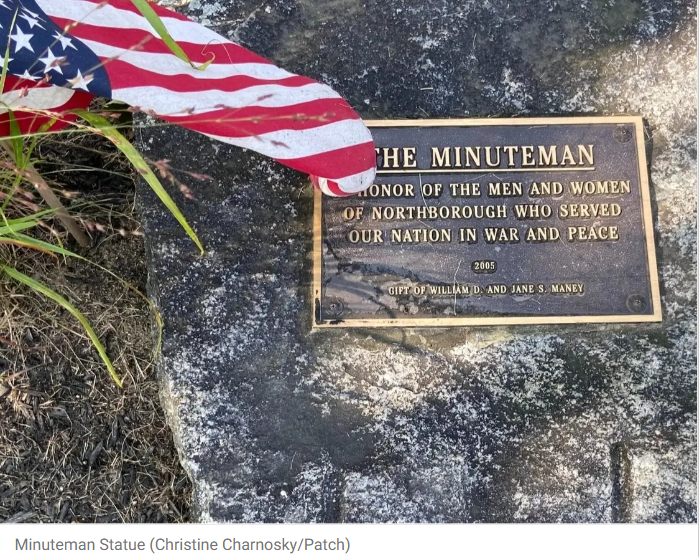TRAVERSE CITY, MI — By simply flying a Confederate flag from his pickup truck, an off-duty Traverse City police officer brought to light the tricky balancing act between free speech and the responsibilities police officers take on with the mantle of public service.
Michael Peters, an 18-year veteran of the city’s police department, was suspended after complaints about his actions at a Friday, Nov. 11, anti-Trump rally flooded into City Hall.
Peters resigned on Monday, Nov. 14, and apologized to the community “for the stain he put on the city” and its police department, according to City Manager Marty Colburn. The former officer’s behavior remains under investigation.
Police Officers Association of Michigan Business Agent Dan Kuhn, the union representative for Peters and all other Traverse City police officers, said Peters made the choice to resign.
“Both sides are satisfied and I think that the best for both sides was accomplished by the resignation,” Kuhn said. “It was the member’s decision.”
It all started when Peters, who was off-duty, arrived with a Confederate flag flying from his truck at the “Love Trumps Hate” rally at Traverse City’s Open Space on Friday, Nov. 11. He allegedly revved his engine while driving past a black family attending the rally before being confronted by at least two of those attending the event.
Protester Marshall Collins Jr., who is black, confronted Peters about bringing the flag to the event.
Free speech
Defenders of the Traverse City officer don’t label his actions as harassment, but as an example of his expression of First Amendment rights afforded to all citizens.
“It had nothing to do with racism or some statement he wanted to make,” Kuhn said. “It’s been in his truck often as long as I’ve known the guy. That flag doesn’t stand for, as far as he was concerned, it doesn’t stand for what the other folks that were offended by it thought it stands for.”
Instead, Kuhn said Peters’s presence at the rally was more of celebration of Trump’s victory in the presidential race and an attempt to counter statements being made by protesters there.
Though Kuhn stands by earlier statements saying Peters had the same right as protesters to express himself at the event, he also said the choice to resign was in the best interest of the officer and community alike.
“Perception can kill you,” he said. “I think that’s why both sides came to the remedy that they did. If his actions damaged the relationship with that community, something’s got to give. I think we all understood that.”
Others say the officer should have known better than to “incite conflict” using so controversial a symbol, especially in a community that embraces diversity as much as Traverse City.
Andrew McFarlane, a local web developer, was one of the first people arriving at the rally Friday when he noticed the flag flying from Peters’ truck.
“When I walked by, I said, ‘Are you guys serious?'” McFarlane said. “The guy said, ‘Excuse me.'”
He categorized the off-duty officer’s tone as that of “restrained aggression,” though he also noted Peters’ calmness during the confrontation that followed.
“I was impressed how calm he was,” McFarlane said. “My feeling was they were there to incite conflict. It felt very calculated to me.”
Traverse City Mayor Jim Carruthers said Peters’ actions on Friday could erode faith in the police department, particularly among its minority community, and have been a divisive element in general.
“It has kind of put more of a wedge into our community,” Carruthers said.
A ‘balancing test’
University of Michigan Law professor Len Niehoff, an expert on the First Amendment, explained that the issue of freedom of speech would not be raised if Peters’ employer was not a public entity.
“What causes the tension here is the police department is actually two things at once,” Niehoff said.
As a division of local government, Traverse City is expected to protect the Constitutional rights of all citizens, he said. But as an employer, the city also must be given reasonable ability to effectively manage its employees.
From a legal perspective, the result is a balancing test used in cases like this involving government employees, Niehoff said.
“The court balances, on one hand, the importance of the speech that the employee is engaging in and whether it addresses a matter of important public concern,” he said. “And, on the other hand, the interests of the employer in regulating the speech or conduct that’s in question.”
Because police officers interact with the public and because the department has a need for public confidence in officers’ impartiality and fairness, Niehoff said he believes “most courts would conclude” the police department’s interests outweigh the importance of what Peters was trying to express.
“The government interest here is very, very high,” he said. “The police department has a very strong interest in making sure that police officers do not do anything to undermine that relationship with the public.”
Friday’s event protested Donald Trump’s election, which McFarlane said has inspired fear among many regarding the impact a Trump presidency might have on them and their neighbors.
He said conversations with his daughter and two friends prompted him to attend the event.
“All of them were talking about the deep fears that they feel and that they feel like they were let down by their fellow Americans, based on Trump’s rhetoric and behavior on the campaign trail,” McFarlane said.
Impact of racial tension
Niehoff said a national issue is in play in the story about the Traverse City officer.
In the wake of the shooting of Michael Brown in Ferguson, Missouri, and other police shootings involving African Americans, he said many law enforcement agencies are taking a new look at how they deal with issues of racial tension in their communities.
“I think that nationally there is a raised consciousness of the importance that our police departments have solid and stable and productive relationships with all of our communities, particularly our minorities communities,” Niehoff said.
Regardless of the officer’s intentions, Carruthers said his use of the Confederate flag could color him in a way that could undermine public confidence in Peters as an individual officer and the police force as a whole.
“What happens if one of our black families that lives here calls the police and he shows up?” he asked. “Would he be as attentive to their needs?”
Given Traverse City’s past efforts to be inclusive and accepting of all residents, and the police department’s commitment to the “community policing” philosophy, McFarlane believes Peters’ responsibilities as a local police officer overrode his right to express his viewpoint.
“I feel that the officer’s judgment was extremely flawed in this case,” McFarlane said.
Similar positions were heard from Police Chief Jeffrey O’Brien, City Manager Marty Colburn and the mayor during a Monday, Nov. 14, press conference.
“This is not what we expect from our city employees,” Carruthers said. “It’s not something we value. It’s not something we accept. This isn’t what the city believes in, in my opinion and from what we’re hearing from the staff and the residents.”
Though Peters is no longer employed by the city, Carruthers said an investigation into his conduct will still be completed, complete with statements from witnesses and the collection of video and photographic evidence from the rally.
A threat to tourism?
As a longtime resident of the Traverse City area, McFarlane said conflict like what was on display Friday is unusual for the community.
“Traverse City is not really big on confrontation,” he said. “Maybe that is one reason this is so surprising to people.”
McFarlane said there is some fear from some in Traverse City’s tourism industry that Peters actions could pose a threat to the region’s reputation.
“The dominant view is that this is not a positive thing for Traverse City,” McFarlane said. “This does not represent us.”
Carruthers also expressed concern about the impact of the story gaining national attention.
“This really isn’t something we want as a tourist town we want on our backs,” he said. “We rely on people from all over the world coming here. We want to be a welcoming community.”
–-mlive.com




